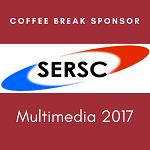
Anton Nijholt
University of Twente , the Netherlands
Title: Playful Multimedia in Smart and Playable Cities
Biography
Biography: Anton Nijholt
Abstract
In research on smart cities the emphasis is on the use of sensors that collect information about a city’s inhabitants’ use of resources, their (real-time) behavior, and, using actuators, provide feedback to its citizens or a city’s management, and make changes to the environment that allow for more efficient use of a city’s resources . Management, efficiency and sustainability are keywords. Smartness in smart cities addresses ways to control energy consumption, increase safety, manage real-time traffic and public events, and manage other ways to make cities more efficient.
There is more to city life than efficiency. Sensors and actuators that make a city smart can be used to introduce smart playful and humorous situations, urban games, and other games that are meant to provide playful experiences or playful participation and contribution to urban design and development. Rather than have sensors and actuators to be introduced for making city life and management more efficient, they can as well be introduced to make city life more playful, increasing playfulness and introducing playful experiences during a citizen’s daily activities. We can talk about playful cities and when citizens are given the opportunity to introduce and configure sensor and actuator networks themselves we can also talk about playable cities.
Playable cities allow inhabitants to introduce their own playful applications. They need access to sensors, actuators and microprocessors. Introducing playfulness and humor in smart environments requires knowledge about humor theories. We discuss the theories and make a transition from the usual verbal humor theories to design principles that allow and stimulate the creation of humor in smart environments. We discuss accidental and intentional occurrences of humor and embed them in a framework of humor creation in smart and digitally enhanced physical environments.

